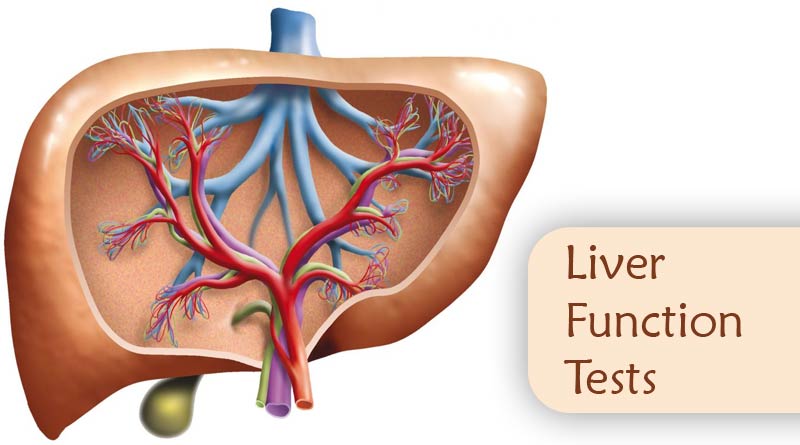Liver Function Tests
Liver enzyme tests, formerly called liver function tests (LFTs), are a group of blood tests that detect inflammation and damage to the liver. They can also check how well the liver is working. Liver enzyme testing includes ALT, AST, alkaline phosphatase; true liver function tests (LFTs) include PT, INR, albumin, and bilirubin.
Why Check Liver Function?
Most often, a liver test panel is ordered as a routine lab test. Many doctors check the liver in new patients or during annual physicals.
Your doctor may conduct liver enzyme and liver function tests if:
- You are taking a medication that can harm the liver
- You have liver disease
- You have symptoms of liver or bile system disease (abdominal pain, nausea and vomiting, or yellow skin)
- You drink alcohol excessively
Liver tests may be done together in a panel or tested separately.
Liver Enzyme Tests: ALT and AST
The liver filters and processes blood as it circulates through the body. It metabolizes nutrients, detoxifies harmful substances, makes blood clotting proteins, and performs many other vital functions. The cells in the liver contain proteins called enzymes that drive these chemical reactions.
When liver cells are damaged or destroyed, the enzymes in the cells leak out into the blood, where they can be measured by blood tests. Liver tests check the blood for two main liver enzymes:
- Aspartate aminotransferase (AST), formerly called SGOT; the AST enzyme is also found in muscles and many other tissues besides the liver.
- Alanine aminotransferase (ALT), formerly called SGPT; ALT is almost exclusively found in the liver.
If ALT and AST are found together in elevated amounts in the blood, liver damage is most likely present.
Liver Enzyme Tests: Alkaline Phosphatase, 5’ Nucleotidase, and GGT
Another of the liver’s key functions is the production of bile, which helps digest fat. Bile flows through the liver in a system of small tubes (ducts), and is eventually stored in the gallbladder, under the liver.
When bile flow is slow or blocked, blood levels of certain liver enzymes rise:
- Alkaline phosphatase
- 5′ nucleotidase
- Gamma-glutamyl transpeptidase (GGT)
Liver tests may check for any or all of these enzymes in the blood. Alkaline phosphatase is by far the most commonly tested of the three.
If alkaline phosphatase and/or 5′ nucleotidase and GGT are elevated, a problem with bile flow is most likely present. Bile flow problems can be due to a problem in the liver, the gallbladder, or the tubes connecting them. Since alkaline phosphatase is also found in bone, it can be elevated in certain medical conditions that affect bone, as well.
Liver Function Tests: PT and INR
Besides its functions in metabolism, the liver makes proteins that are essential to normal blood clotting. True liver function tests check the liver’s ability to make these proteins. They include:
- Prothrombin time (PT): A test of the time it takes for a blood sample to clot, under specific conditions in a lab; if low levels of clotting factors are present, the prothrombin time is longer.
- International normalized ratio (INR): Not really a test, but a standardized way for all labs to report PT, so their results can be compared accurately with each other.
PT and INR rise in people with severe liver disease because the liver fails to make normal amounts of certain clotting factors. An elevated PT can have many other causes besides liver disease, however.
PT is often checked together with PTT (partial thromboplastin time), which is not a liver function test. If PT and/or PTT are elevated, a problem with bleeding or clotting may be present.
Liver Function Tests: Albumin
The liver also makes albumin, an essential protein that circulates in blood. Albumin levels are low in people with severe chronic liver disease, because the liver does not make normal amounts of albumin. However, albumin levels also may fall in a variety of medical conditions. A low albumin level is often temporary, so it is not a reliable way to diagnose liver disease.
Liver Function Tests: Bilirubin
Bilirubin is a waste product from the breakdown of red blood cells. The liver processes bilirubin so it can be excreted in stool. Bilirubin flows through the liver’s bile ducts, dissolved in bile.
Bilirubin blood levels may be elevated in people with impaired bile flow. This can occur in severe liver disease, gallbladder disease, or other bile system conditions. Very high bilirubin levels cause jaundice, in which the skin and whites of the eyes turn yellow. Bilirubin can be a useful liver function test in people with a known bile flow problem. An elevated bilirubin may also be present in people with a type of anemia, called hemolytic anemia.
References:
http://www.parsiteb.com
webmd
 Parsi Teb Physical and Mental Health Journal
Parsi Teb Physical and Mental Health Journal 

